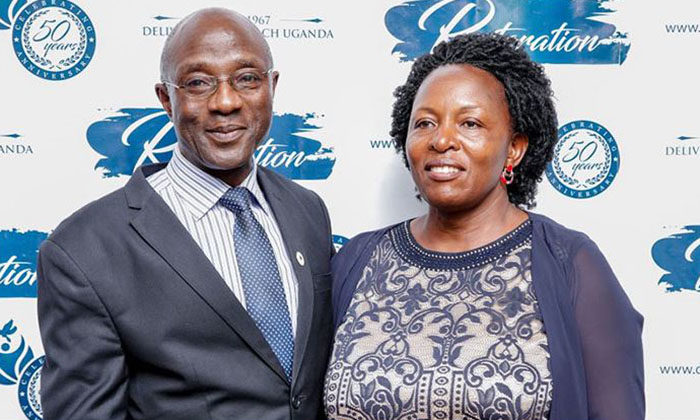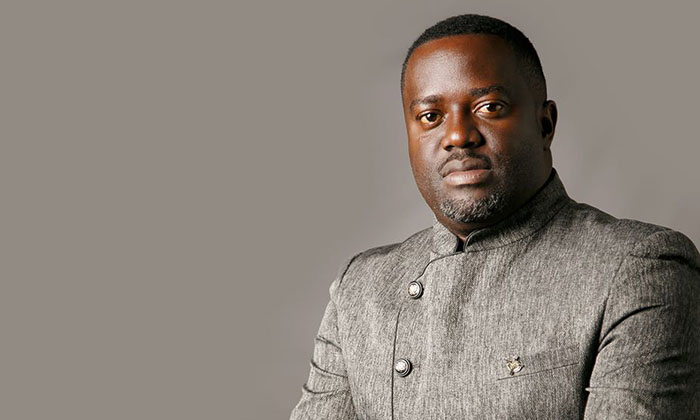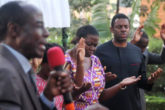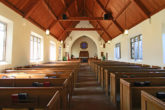
Pastor Edward Kiwanuka, the general overseer of Deliverance Church Uganda (DCU) and wife. Photos |Courtesy/Ritah Mukasa.
Reflecting on the effects of the coronavirus pandemic that has now affected over 1.2 million people worldwide, Pastor Edward Kiwanuka – the general overseer of Deliverance Church Uganda (DCU) – believes “it’s time for self examination.”
Pastor Kiwanuka confidentially explained in a statement released on April 6 that he is resetting his priorities in terms of what to teach in the church in order to prepare Christians “for the now and what is to come.”
He said that the ongoing coronavirus lock-down in the country indirectly seeks to offer Ugandans an opportunity to “reflect on our relationship with [God], get rid of all competing idols in our lives and get recharged for the next leg of our journey.”
“Even me as an individual, I need to make up my mind and be ready for the worst; not to allow temporary relief and pleasure deny me a wonderful inheritance as an heir of God and a co-heir with Jesus Christ. Elijah asked Israel one time, ‘choose ye this day whom you will serve’ (1 Kings 18:21). The challenge is now to us, ‘choose ye this day whom you will serve,'” Pastor Kiwanuka said.
A few days ago, a viral post on social media purported that Bill Gates is planning to use microchip implants to fight the coronavirus. Most of the posts said Gates will “launch human-implantable capsules that have ‘digital certificates’ which can show who has been tested for the coronavirus and who has been vaccinated against it.”
Reuters, an international media organization stated following an investigation that the viral post is false and misleadingly.
Nevertheless, Pastor Kiwanuka wondered how many Christians are able to stand their ground on basis of their faith in Christ and refuse to take a chip?
“How would members of my home and congregation respond if there was such a directive? How many will stand their ground on basis of their faith in Christ and refuse to take the chip? Is what I have taught them able to help them remain rooted in Christ to the point of offering to die rather than compromise their faith?” Pastor Kiwanuka said. “I remembered the scripture that says all our works will be tested through fire(1 Cor. 3: 10-15).”
“End times are with us. Remember Jesus is coming for a glorious church, one without spot or wrinkle; not for a frighten, cowering church (Eph. 5:27). We need strong Christians who will not bow down to Satan’s temptations; who are dead to sin; who love not their lives (Rev. 12:11); Christian’s like Shadrach, Meshach and Abednego who stood their ground in the face of a blazing furnace and a no- nonsense king. We need a church like the Uganda martyrs who willingly chose to die in fire rather than give up their faith in the living God,” he said.

Pastor Charles Kasibante, the senior pastor of House of Inspiration and the founder of a Kampala fellowship, Destiny Matters says the coronavirus lockdown is a wake up call to Pastors to invest time in the teaching ministry of the Church.
Although many churches have taken their worship services online with either pre-recorded sermons or livestreaming as most Ugandans are on lockdown, Pastors shouldn’t stop with that, Pastor Kasibante stressed.
“None of us prepared for this. None of us expected this to happen,” he said.
“We are in that time where you need to stand firm in your faith,” Pastor Charles Kasibante observed, adding this will only happen with increased knowledge of the Word of God.
“The body of Christ will not survive this crisis if we have believers that are immature,” he said. We have a spoon-fed Body of Christ, he cautioned.
“The Ministry of our Lord Jesus Christ was about doing and teaching. Many ministries, have so much been engrossed on the prophetic and the miracle side, and the healing movement. But I believe that for the strength of the church on the next measure, [we] must translate into the teaching ministry,” he said.
“I’m not saying that preaching, healing and prophetic ministries are wrong or are bad, what I’m saying is that the teaching ministry must now return with intentionality. We must be intentional in teaching the Word,” he added.

